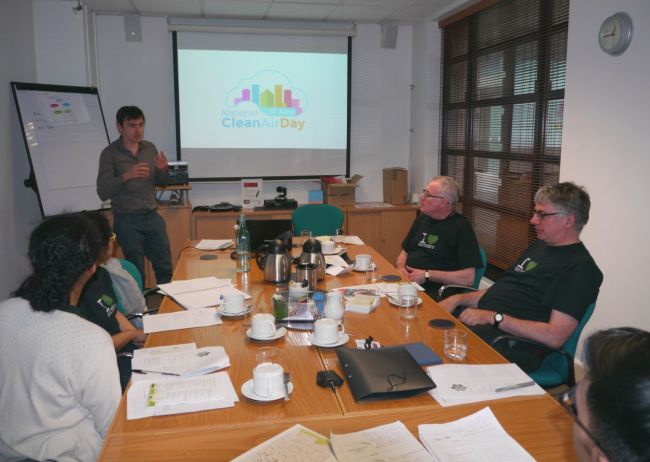Energy from waste: How can local authorities mitigate financial impact of the ETS?
Welcome back to our series exploring the multifaceted world of the Energy from Waste (EfW).

Welcome back to our series exploring the multifaceted world of the Energy from Waste (EfW), where we will delve into various perspectives on EfW, examining its current state, challenges, and future prospects as the private and public sector alike strive to address energy security, waste management, planning and decarbonisation. In the series, Amberside Advisors will unpack how different actors in this sector will be impacted by upcoming changes to the emissions trading scheme, innovative business models, changing technology and more. Stay tuned as we uncover insights into the ever-evolving EfW landscape.
In the summer of 2023, it was announced that energy-from-waste (EfW) plants would be subject to the emissions trading scheme (ETS) from 2028, forcing facilities to pay a fee per carbon emissions they produce. The implications for the industry (which will have to report on its emissions from 2026) overall are mixed.
One group that can ill afford this additional financial burden are the local authorities responsible for municipal waste collection, who sent approximately 16 million tonnes of waste to Efw plants in 2023. A research paper by the Chartered Institution of Waste Management (CIWM) has found that ETS could add up to £660 million collectively to local authority bills by 2028, potentially reaching £850 million per year by 2035.
At a time when local authority budgets are already stretched, this extra cost is, to say the least, unwelcome. But how can cash-strapped local authorities and the EfW operators they work with best handle this scenario?
EfW: The local authority perspective
The fiscal landscape for local authorities is known to be difficult, and waste management costs vary greatly from authority to authority based on their local economy, demography and geography.
The added costs from ETS could see soaring bills for councils, who will unfortunately be called on to foot the bill for EfW ETS fees with operators having signed contracts that will pass any unexpected costs onto them.

Barnet’s costs would be more than the total amount the authority spends on libraries or on social care management and children with disabilities combined. For Wolverhampton, the price of EfW ETS is equal to the combined spending in libraries, leisure centres and homelessness and new communities, while Birmingham’s ETS bill will be significantly more than is currently spent on adult social care and independent living.
Local authorities are struggling to pay for the basics, and four councils have issued section 114 in the last three years, with many other councils rumoured to be on the brink. Preoccupied with how to pay for emergency housing, social care and potholes over the next year the down-the-line ETS fees are at the bottom of the list. Added to this ETS could see bitter wrangling over costs between authorities who share EfW facilities.
What are the solutions?
CCUS
One option is to reduce emissions from the plant chimney using carbon capture and storage (CCUS).
As of 2025, the UK is investing heavily in CCUS, committing up to £21.7 billion over 25 years to develop low-carbon industrial clusters including the East Coast Cluster in Teesside and Humber, HyNet North West in Merseyside, and the Acorn Project in Scotland. However, CCUS is not a silver bullet for EfW.
To be ready in time to reduce ETS fees in 2028, CCUS must already be under construction at EfW plants. Those considering plant installation will need to contend with an often lengthy planning process to install what is essentially a chemical plant on their asset.

Meanwhile, CCUS complicates the business case for EfW.
On one hand, only roughly 50% of the waste stream going into EfW plants is carbon-based and CCUS offers the tantalising prospect of carbon credits gained through sequestering biogenic CO2 from the remaining 50%.
However, on the other hand, CCUS itself is so energy-intensive that it will use up a large percentage of the power generated at EfW facilities, taking away a big revenue source for operators. Likewise, not all plants will be suitable for CCUS installation based on location. EfW plants near Merseyside or along the Northeast coast may be able to access a pipeline; others face the challenge of transporting sequestered carbon to a suitable hub, which, as well as being an additional logistical cost, will add carbon emissions to operations.
Finally, any costs of installing and operating CCUS will be subject to wrangling from councils using EfW facilities who may have differing contracts in terms of length and obligation, adding further uncertainty and risk for operators.
Increasing recycling

A further solution, and one being widely considered, is boosting recycling in an effort to decarbonise waste streams at the point of collection.
The UK is introducing major legislative changes to improve recycling and move towards a circular economy.
- From this year, under the Simpler Recycling rules, all workplaces in England must separate recyclable waste streams—plastic, metal, glass, paper/card, and food waste—from general waste.
- Also, this year, the Extended Producer Responsibility (EPR) scheme will make producers responsible for the full cost of managing packaging waste, overseen by a new body, PackUK.
- The Deposit Return Scheme (DRS) will begin in 2027 and will place a deposit on single-use drinks containers to encourage returns.
- Reforms to the Waste Electrical and Electronic Equipment (WEEE) regulations will require online marketplaces to fund recycling, ensuring fairer responsibility alongside physical retailers.
Boosting recycling is politically sensitive and does not guarantee ratepayer participation in any case, with punitive measures for non-participation a toxic issue. A further complication is that ETS fees are calculated using emissions at the chimney, not by assessing waste stream mix at collection, meaning if recycling does not directly translate to emissions reduction in the short-term, it will be fruitless in avoiding fees.
Where do we go from here?
The ultimate danger of EfW ETS, as pointed out in the CIWM report, is that authorities may resume sending waste to landfill. This would be a disaster in terms of waste management (a timely reminder that EfW is primarily for this purpose and not for energy production) but also for reducing emissions themselves, as EfW was conceived of originally as a solution to landfill-produced methane.
The inclusion of EfW in the ETS scheme is well-intended but appears to have been ill thought through by central Government and any solutions to save money will not be cost-free. As we approach the 2028 deadline local authorities will need to consider options carefully to minimise cost and reduce emissions without angering taxpayers.
------------------------------------------------
Viet Nguyen is an Associate Director at Amberside Advisors, responsible for leading our team on mandates across renewable energy generation sectors, with a particular focus on energy from waste and biogas. With his career spanning appointments at a range of financial advisory specialists combined with a decade-long experience working in-house within the waste and biogas industry, Viet covers a full range of advisory services - Financial Modelling, Model Audit, Valuation, Value Enhancement Analysis/Appraisal, FDD, Buyside/Sellside Advisory and Greenfield Financing.
Amberside Advisors specialises in financial & commercial advisory services for infrastructure, renewables and energy transition. Under Viet's leadership, Amberside Advisors' team has worked on a variety of mandates across EfW and CCUS, having held roles on 47% of the UK EfW projects and 58% of the UK EfW sector operating tonnage capacity, with 10mt of Waste projects under our belt.
We support project funders, asset owners and public sector bodies in navigating the complexities of the EfW sector and ensuring their projects in this space take advantage of the best financial advice leveraging our long-standing experience and knowledge of the industry regulations. Since 2021, we’ve been serving on a 10-year-long mandate as financial advisors to the North London Waste Authority, with more recent additional appointment to advise NLWA on the commercial feasibility and financing for the retrofit of carbon capture technology to the site. Additionally, we have recently completed an inhouse ETS and CCUS development appraisal tool for a leading waste developer/operator, provided FDD support for acquisition of Merseyside Waste PFI/Wilton EfW, as well as Kent Renewable Energy Limited and Westfield Energy Recovery Facility, amongst others.
Please reach out to learn about Amberside Advisors’ work in the EfW space and to find out how we can support your next project or help you navigate the upcoming ETS changes.










